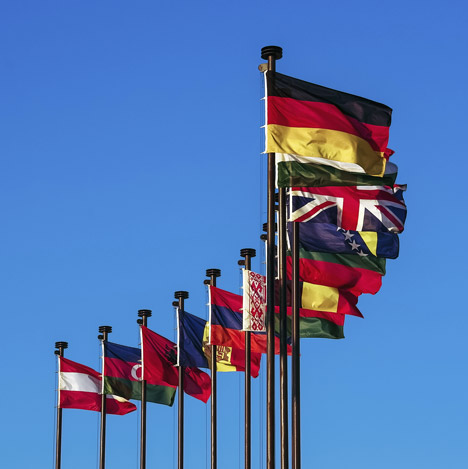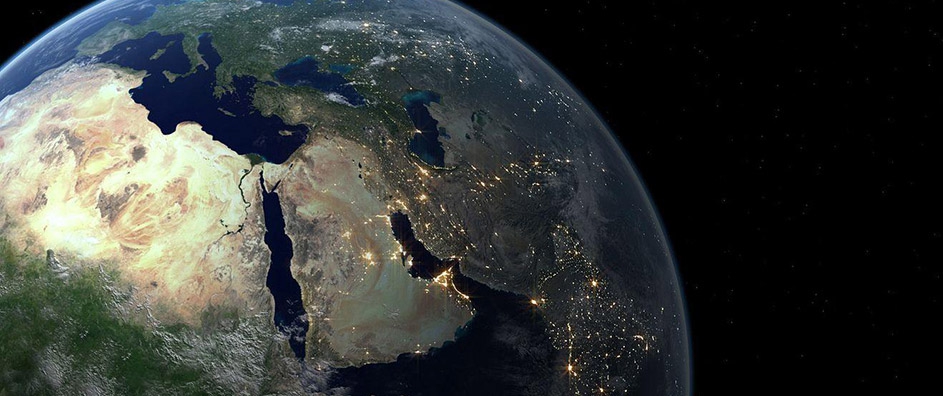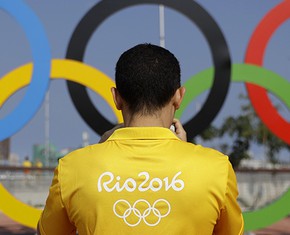The views expressed in our content reflect individual perspectives and do not represent the authoritative views of the Baha'i Faith.
Were man to appreciate the greatness of his station and the loftiness of his destiny he would manifest naught save goodly character, pure deeds, and a seemly and praiseworthy conduct. If the learned and wise men of goodwill were to impart guidance unto the people, the whole earth would be regarded as one country. – Baha’u’llah, Tablets of Baha’u’llah, p. 172.
When you think about your identity, the main facts of who you are, how would you describe it to someone you’d just met?
Would you say “I’m from Belize or America or Haiti or Antarctica or Ireland? (Probably not—nobody but penguins on Antarctica) Or would you say “I’m Japanese” or I’m Russian” or “I’m Ethiopian?”
Think about it for a minute.
Do you define yourself, your identity, by the nation where you were born?
 After all, the place of our birth is basically an accident of geography and chance and circumstance. Our citizenship depends on a few guys a few hundred years ago who drew lines on a map, or on the outcome of an old war, or maybe on the country where our ancestors decided to immigrate.
After all, the place of our birth is basically an accident of geography and chance and circumstance. Our citizenship depends on a few guys a few hundred years ago who drew lines on a map, or on the outcome of an old war, or maybe on the country where our ancestors decided to immigrate.
My grandparents came to America from Scandinavia, but at the time my grandfather had a choice: he could go to America, where his three brothers had already immigrated, or he could go to South Africa, where his friend Johannes wanted him to go. He told me he really agonized over the decision, but ultimately family won out and he decided to come to America. His friend went to South Africa, one of the white settlers in the gold rush there in the early 1900s, and ultimately became a staunch, wealthy Boer, fighting and enslaving and oppressing the native South Africans. You’ve heard of Johannesburg? My grandfather told me they named the city after his boyhood friend.
I thanked my grandfather often for making the choice he did–because like his friend’s children and grandchildren, I could easily have been born into the ruling elite of the white colonialists who built and maintained such a brutal apartheid regime in South Africa.
You say you’re indigenous? Well, even the indigenous peoples of the world may have migrated to their ancestral lands. I have a Navajo friend who was stunned when he met his first Tibetans, and realized he could understand their language. Some anthropologists think the Athabascan ancestors of the Navajos came across the Aleutian peninsula from the Far East thousands of years ago. Although no one really knows, the current science says they probably descended, like all human beings likely did, from the first African peoples who migrated outward from that continent hundreds of thousands of years ago. In other words, unless you’re from the cradle of humankind, the Olduvai Gorge in East Africa, your ancestors could have migrated to your “homeland” from somewhere else.
So defining yourself by your national identity, by where your mother lived when she had you, doesn’t really make sense–especially now. The world’s borders have ceased to mean as much as they once did. In places like the European Union, for example, national borders have increasingly faded and lost relevance. Our modern identities have become much more fluid and changeable. Many people have ties to several different countries and national affiliations. The world, increasingly open and less rigidly nationalistic about those identities, is in the midst of a historical transition from the old nation-state model to a more globalized international one—which means we all have become de facto citizens of the world.
This increasing sense of world citizenship has begun to eliminate the need for the nation-state to play the important role it once did, and can also gradually reduce and eliminate the basis for national conflicts that lead to war:
The cause of peace is a very great cause; it is the cause of God, and all the forces of the world are opposed to it. Governments for instance, consider militarism as the step to human progress, that division among men and nations is the cause of patriotism and honor, that if one nation attack and conquer another, gaining wealth, territory and glory thereby, this warfare and conquest, this bloodshed and cruelty are the cause of that victorious nation’s advancement and prosperity. This is an utter mistake. Compare the nations of the world to the members of a family. A family is a nation in miniature. Simply enlarge the circle of the household and you have the nation. Enlarge the circle of nations and you have all humanity. The conditions surrounding the family surround the nation. The happenings in the family are the happenings in the life of the nation. Would it add to the progress and advancement of a family if dissensions should arise among its members, fighting, pillaging each other, jealous and revengeful of injury, seeking selfish advantage? Nay, this would be the cause of the effacement of progress and advancement. So it is in the great family of nations, for nations are but an aggregate of families. Therefore as strife and dissension destroy a family and prevent its progress, so nations are destroyed and advancement hindered. – Abdu’l-Baha, Foundations of World Unity, p. 100.
Baha’is strongly believe that this gradual, historic shift from nation-states toward international, global governance and citizenship will ultimately benefit us all:
The people of the future will not say, “I belong to the nation of England, France or Persia”; for all of them will be citizens of a universal nationality — the one family, the one country, the one world of humanity — and then these wars, hatreds and strifes will pass away. – Abdu’l-Baha, The Promulgation of Universal Peace, p. 19.
















Comments
Sign in or create an account
Continue with Googleor